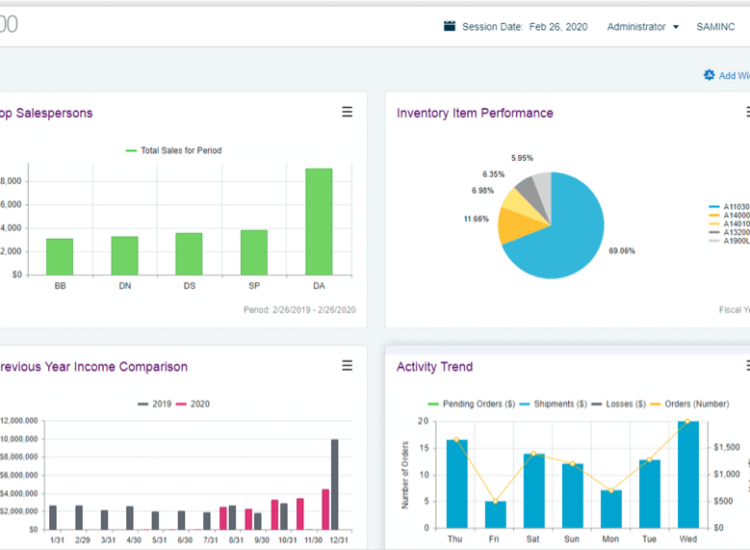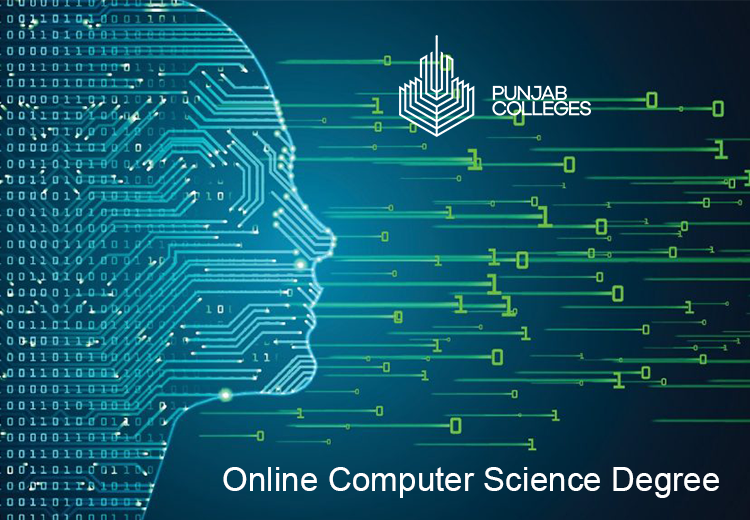In recent years, the demand for computer science professionals has grown exponentially due to rapid advancements in technology. As a result, many individuals are looking to transition into this field to take advantage of numerous job opportunities and higher salaries.
Toc
- 1. Introduction to Computer Science
- 2. Why Pursue an Online Computer Science Degree?
- 3. Related articles 01:
- 4. Considerations When Choosing an Online Program
- 5. Types of Online Computer Science Degrees Available
- 6. Comparison Between Traditional and Online Programs
- 7. Related articles 02:
- 8. The Future Outlook for Computer Science Careers
- 9. Conclusion
One of the most popular ways to enter the tech industry is by pursuing an online computer science degree. These programs offer flexible schedules and the ability to learn from anywhere, making them ideal for career changers who may have other commitments or cannot attend traditional on-campus programs.
Let’s explore with https://doksannews.com/
Introduction to Computer Science

Before diving into the benefits of pursuing an online computer science degree, it’s important to understand what exactly computer science is. In simple terms, computer science is the study of computers and computational systems. It involves both theoretical and practical aspects, including designing and developing software, creating algorithms, and analyzing data.
Computer science is a broad field that encompasses many subfields such as artificial intelligence, programming languages, database management, and information security. As technology continues to evolve at a rapid pace, computer science professionals are needed in almost every industry.
What is Computer Science Used For?
Computer science is used in a variety of industries and fields, from healthcare and finance to entertainment and transportation. Some specific applications of computer science include:
- Developing software and mobile applications
- Designing algorithms for data analysis and machine learning
- Creating secure systems for data storage and communication
- Building websites and implementing user interfaces
- Developing virtual reality and augmented reality experiences
In essence, computer science plays a critical role in shaping our modern world. It enables us to solve complex problems, automate tasks, and improve efficiency in many aspects of our lives.
The Growing Demand for Computer Science Professionals
The tech industry is booming, and so is the need for skilled computer science professionals. According to the U.S. Bureau of Labor Statistics, employment in computer and information technology occupations is projected to grow 11% from 2019 to 2029, much faster than the average for all occupations. Industries such as healthcare, finance, and entertainment are increasingly reliant on technology, further driving the demand for computer science expertise. Examples of High-Demand Industries:
- Healthcare: Implementing electronic health records (EHRs) and telemedicine.
- Finance: Enhancing cybersecurity and developing fintech solutions.
- Entertainment: Creating immersive experiences with virtual reality (VR) and augmented reality (AR).
Why Pursue an Online Computer Science Degree?

While there are many traditional on-campus programs available, online computer science degrees have become increasingly popular for career changers. Here’s why:
1. Convenience and Flexibility
One of the most significant advantages of online computer science degrees is the convenience they offer. Students can access course materials and lectures from the comfort of their homes, allowing them to balance studies with work and personal commitments. This flexibility means that learners can fit their education into their existing schedules, whether they prefer late-night study sessions or early morning classes. Furthermore, the absence of commuting time allows for a more efficient use of each student’s day.
2. Diverse Range of Specializations
Online computer science programs often provide a diverse range of specializations, enabling students to tailor their education to their career goals and interests. Whether one is drawn to artificial intelligence, cybersecurity, software development, or data science, there are numerous pathways to explore. This focus on specialization allows students to develop expertise in high-demand areas of the tech industry, enhancing their employability upon graduation.
3. Networking Opportunities
Though online degrees might seem isolated, many programs incorporate collaborative projects, forums, and networking events that connect students with peers, faculty, and industry professionals. These interactions can be invaluable for career changers, as they help to build relationships within the tech sector and open doors to potential job opportunities. Engaging with a community of like-minded individuals fosters an enriching learning environment and can lead to lifetime professional connections.
1. https://doksannews.com/archive/470/
2. https://doksannews.com/archive/46/
3. https://doksannews.com/archive/38/
In conclusion, pursuing an online computer science degree not only provides the necessary skills for a successful career in technology but also offers a flexible and supportive learning experience tailored to the needs of aspiring professionals navigating a transition in their careers.
Considerations When Choosing an Online Program

Selecting the right online computer science program is paramount for ensuring a successful academic and career journey. Here are some critical factors to consider:
1. Accreditation
When exploring online computer science programs, it is essential to ensure that the institution is accredited by a recognized accrediting body. Accreditation guarantees that the program meets specific educational standards and provides students with quality education. Graduating from an accredited program can enhance your credibility in the job market and may be a requirement for certain employers or advanced degree programs. Researching the accreditation status of a school can save you time and resources by helping you select a reputable institution that aligns with your career goals.
2. Curriculum and Course Offerings
Next, review the curriculum and course offerings of the programs you are considering. Look for comprehensive courses that cover core computer science concepts as well as specialized topics relevant to your interests and career aspirations. A well-rounded curriculum should include both theoretical foundations and practical applications, equipping you with the skills needed to tackle real-world challenges. In addition, check for opportunities to work on projects, internships, or hands-on experiences, as these can significantly enhance your learning and prepare you for the workforce.
3. Faculty Qualifications
The qualifications and experience of the faculty members can greatly influence your educational experience. Investigate the backgrounds of the instructors to determine their expertise in the field of computer science and their involvement in current industry practices. Faculty who are active in research or work in tech companies can provide valuable insights and connections that enrich the learning experience.
4. Student Support Services
Consider the availability of student support services, such as academic advising, tutoring, and career services. Effective support systems can be instrumental in helping you navigate your online education and ensure you remain on track to achieve your goals. Look for programs that offer robust resources to assist students with both academic and career-related issues, including resume writing, interview preparation, and job search assistance.
By carefully evaluating these factors, you can select an online computer science degree program that not only meets your educational needs but also aligns with your professional aspirations, paving the way for a successful career in technology.
Types of Online Computer Science Degrees Available
Bachelor’s Degree
A Bachelor’s degree in computer science typically represents the foundational educational requirement for many entry-level positions in the tech industry. This degree usually encompasses a comprehensive curriculum that covers essential topics such as programming languages, algorithms, data structures, and software engineering. Students will also have opportunities to engage in elective courses focusing on specific areas of interest, such as cybersecurity, artificial intelligence, or web development. Earning a Bachelor’s degree online not only provides flexible learning options but also allows students to collaborate on projects and gain hands-on experience through virtual simulations and labs. Moreover, many programs incorporate preparing students for industry-recognized certifications, further enhancing their qualifications for prospective employers.
Master’s Degree
A Master’s degree in computer science serves to deepen knowledge and expertise in advanced topics, preparing graduates for leadership roles or specialized positions within the tech industry. This degree often requires a blend of theoretical coursework and practical experience, focusing on areas such as machine learning, cloud computing, and systems architecture. Many programs offer options for research projects or a thesis, enabling students to contribute to the field while honing their critical thinking and problem-solving skills. Graduates of Master’s programs are often well-positioned for higher-level positions, such as software engineers, data scientists, or technology managers, reflecting the increased demand for skilled professionals capable of tackling complex challenges in today’s evolving technological landscape.
Doctorate Degree
For those aspiring to engage in cutting-edge research or academia, a Doctorate degree in computer science is the pinnacle of academic achievement. This program emphasizes original research, requiring students to contribute new knowledge to the field through their dissertation. Candidates may focus on niche areas within computer science, such as quantum computing, human-computer interaction, or network security. Alongside their research, students typically engage in teaching assistantships, enhancing their pedagogical skills while gaining valuable experience in mentorship. Graduating with a Ph.D. opens doors to careers in higher education, research institutions, and innovative technology firms, establishing professionals as experts in their respective domains.
Certificate Programs
Certificate programs in computer science offer a flexible and targeted approach for individuals seeking to enhance specific skills or advance their careers without committing to a full degree. These programs can cover various topics, including web development, data analytics, or cybersecurity. Certificate courses often emphasize practical, hands-on training, allowing students to gain relevant skills quickly. This makes them an ideal choice for professionals looking to pivot or upskill in response to the rapidly evolving job market, ensuring that they remain competitive and relevant in their fields. Additionally, many certificate programs can be stacked towards a degree, providing a pathway for continued education.
Comparison Between Traditional and Online Programs

When deciding between traditional and online computer science degree programs, it is essential to consider the unique characteristics of each learning environment. While both options offer quality education, some differences may influence your decision.
Learning Environment
Traditional programs typically involve attending classes on campus, providing opportunities for face-to-face interactions with peers and faculty. This allows for real-time discussions and debates, promoting critical thinking and collaboration skills. Alternatively, online programs provide a more flexible learning environment, allowing students to access course material at their convenience. While this may suit those with busy schedules or geographical limitations, it also requires self-discipline and time-management skills to stay on track.
1. https://doksannews.com/archive/468/
2. https://doksannews.com/archive/24/
3. https://doksannews.com/archive/63/
Course Format
Traditional programs typically follow a semester-based schedule, with assignments and exams spread out across the duration of the course. Online programs may offer more accelerated options or self-paced learning, where students can complete courses at their own pace within a designated timeframe. This format requires students to be proactive in managing their workload and staying on top of deadlines.
Cost
The cost of traditional programs often includes expenses like housing, transportation, and campus fees in addition to tuition. Online programs typically have lower tuition costs since they do not require physical facilities. However, it is essential to consider any additional technology or software fees that may be associated with online learning.
Program Length
Traditional programs usually follow a fixed timeline for completing degree requirements, whereas online programs may provide more flexibility in pacing. This means that online students may be able to complete their degree at a faster rate, depending on their individual circumstances and dedication.
Hands-On Experience
While both traditional and online programs offer opportunities for hands-on experience through projects, assignments, and labs, the format may differ. Traditional programs often have dedicated lab spaces with physical equipment, whereas online programs may utilize virtual simulations or cloud-based environments. It is crucial to understand how hands-on experience is incorporated into each program when making a decision.
The Future Outlook for Computer Science Careers

The future looks bright for computer science professionals, with continuous advancements in technology and an increasing reliance on tech solutions across industries. Remote work opportunities are also on the rise, offering flexibility and work-life balance for tech professionals.
Potential for Remote Work
The potential for remote work has transformed the landscape of computer science careers. Many organizations are now embracing flexible work arrangements, allowing professionals to operate from anywhere with an internet connection. This shift not only enhances job satisfaction but also expands employment opportunities, as geographical limitations are diminished. For computer scientists, the ability to collaborate on global teams, access diverse projects, and maintain a better work-life balance can lead to increased creativity and productivity. As technology continues to evolve, industries will likely seek individuals who are not only skilled in technical abilities but also adaptable to the changing nature of work environments. This trend aligns with the growing emphasis on digital literacy, encouraging aspiring tech professionals to cultivate a range of competencies that will be indispensable in the future workforce.
Find out more: https://doksannews.com/lenovo-computers-powering-up-your-business-with-performance-and-reliability/
Emerging Technologies
As the field of computer science continues to evolve, several emerging technologies are shaping the future landscape of careers within the discipline. Areas such as artificial intelligence (AI), machine learning, and data science are rapidly gaining traction, providing new avenues for innovation and problem-solving. Professionals who specialise in these fields are in high demand, as organisations leverage big data and AI-driven insights to enhance decision-making processes. Additionally, advancements in blockchain technology are prompting a need for experts who understand its applications beyond cryptocurrencies, including transparent supply chain solutions and secure digital transactions.
The Importance of Lifelong Learning
In an ever-changing technological landscape, the importance of lifelong learning becomes increasingly significant. Computer science professionals must stay abreast of the latest developments and trends to remain competitive. This entails not only formal education, such as workshops, webinars, or advanced degrees but also self-directed learning through online courses, coding bootcamps, and tech meetups. Embracing a mindset of continuous learning enables professionals to adapt to new technologies, refine their skill sets, and anticipate the demands of an evolving job market.
Conclusion
In summary, the decision between traditional and online computer science programs hinges on individual preferences, learning styles, and lifestyle commitments. Each mode of education offers unique advantages that cater to different needs, from the structured environment of in-person classes to the flexibility of online learning. As the landscape of computer science careers evolves, it is essential for aspiring professionals to consider their long-term goals and the skills they wish to develop. Emphasising hands-on experience, staying updated on emerging technologies, and committing to lifelong learning will ultimately empower students to thrive in a dynamic and competitive job market. By thoughtfully evaluating their options and aligning their education with industry demands, individuals can pave the way for a successful and fulfilling career in the field of computer science.















